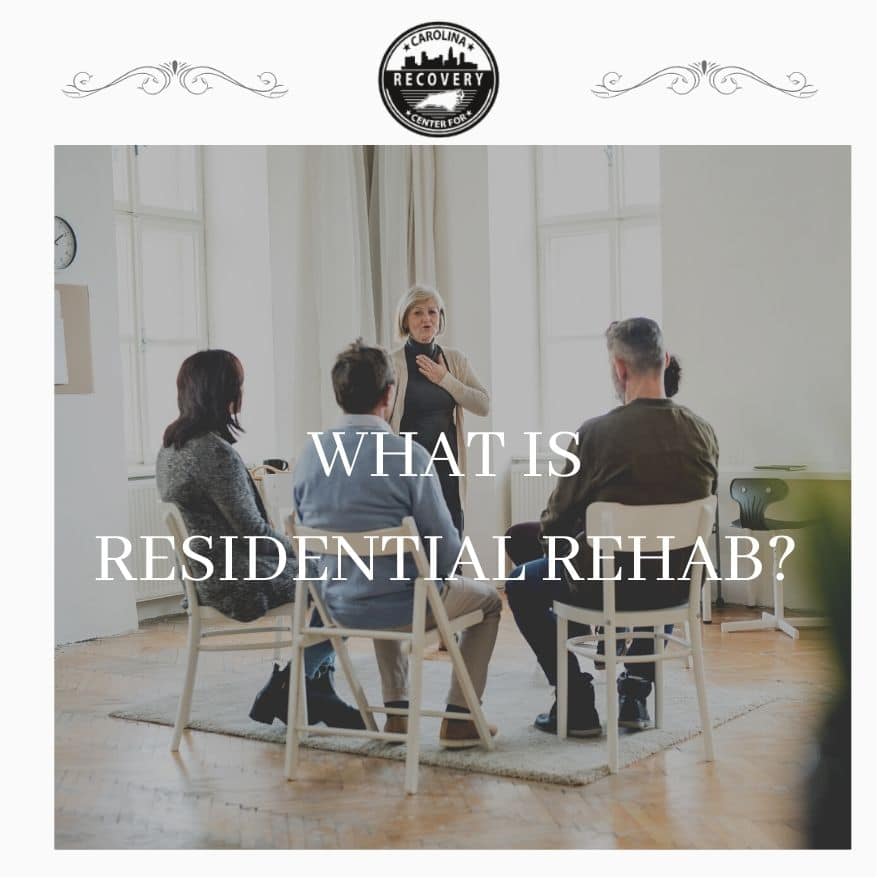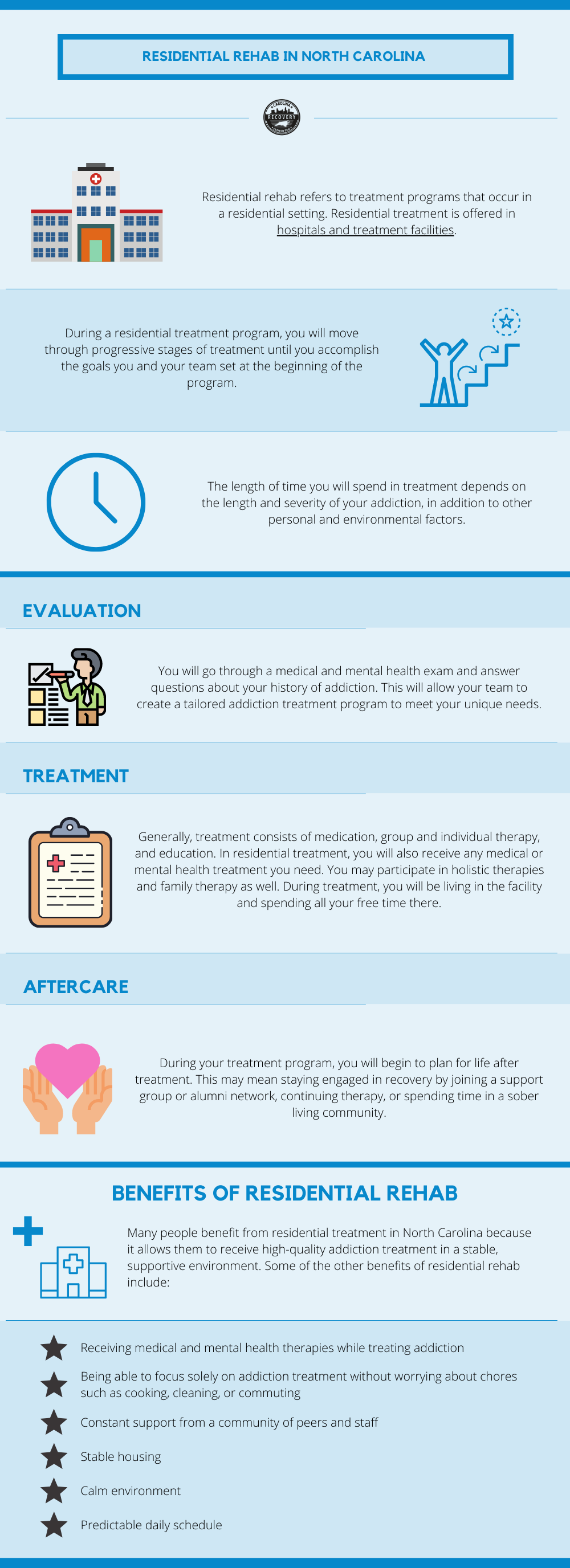What is Residential Rehab?

Medically Verified: 2/1/24
Medical Reviewer
Chief Editor

All of the information on this page has been reviewed and verified by a certified addiction professional.
If you or someone you love struggles with addiction, you probably understand the impact it can have on all aspects of a person’s life. Most people live with the consequences of addiction for years before seeking the treatment they need to overcome it. Their mental and physical health, social life, and finances suffer as the addiction becomes the center of their lives.
Seeking treatment is an important, often life-saving, decision. It is important to get the education, medical care, and therapy you need to leave addiction behind and move forward into a new, healthy life. Each person has their own journey with addiction, and there are many treatment options available.
Research shows that people who complete a residential treatment program are more likely to avoid relapse and maintain sobriety for life compared to people who participate in other forms of treatment.[1] If you are considering residential rehab in North Carolina, it is important that you know what you expect so you can get the most out of your time in treatment.

What is Residential Rehab?
Residential rehab refers to treatment programs that occur in a residential setting. Residential treatment is offered in hospitals and treatment facilities. During a residential treatment program, you will move through progressive stages of treatment until you accomplish the goals you and your team set at the beginning of the program. The length of time you will spend in treatment depends on the length and severity of your addiction, in addition to other personal and environmental factors.
Evaluation
You will go through a medical and mental health exam and answer questions about your history of addiction. This will allow your team to create a tailored addiction treatment program to meet your unique needs.
Treatment
Generally, treatment consists of medication, group and individual therapy, and education. In residential treatment, you will also receive any medical or mental health treatment you need. You may participate in holistic therapies and family therapy as well. During treatment, you will be living in the facility and spending all your free time there.
Aftercare
During your treatment program, you will begin to plan for life after treatment. This may mean staying engaged in recovery by joining a support group or alumni network, continuing therapy, or spending time in a sober living community.
Some people prefer to attend a local rehab center, and others prefer to travel to a new location. There are benefits and challenges to both options, and you should carefully consider which makes the most sense to you and your unique situation.
Benefits of Choosing a Residential Treatment Program
Many people benefit from residential treatment in North Carolina because it allows them to receive high-quality addiction treatment in a stable, supportive environment. Some of the other benefits of residential rehab include:[2]
- Receiving medical and mental health therapies while treating addiction
- Being able to focus solely on addiction treatment without worrying about chores such as cooking, cleaning, or commuting
- Constant support from a community of peers and staff
- Stable housing
- Calm environment
- Predictable daily schedule
People who finish an inpatient program often move into a lower level of care, such as outpatient treatment or sober living. Research shows that people who complete a residential treatment program are less likely to relapse after they leave rehab.
How to Prepare for Residential Rehab in North Carolina
In order to be able to focus on your addiction treatment program, it’s important to prepare for your time in the program ahead of time. There are many things you might need to take care of before entering rehab, including:
- Work: Let your employer know that you will be away and an approximate length of time you will be unable to work
- Childcare: If you have children, you will need to make sure they will be safe and cared for while you are in rehab.
- Household maintenance: Think about who will mow the lawn, take in the mail, etc.
- Bills: Arrange for someone to pay your bills while you are away, or set up auto-pay
- Pets: Find suitable care for any pets in the home.
As you pack for rehab, make sure you are following your facility’s specific guidelines. Generally, you will be asked to bring only essential items, including appropriate clothing and toiletries. If you are traveling to North Carolina for rehab, be sure to check on weather conditions as you pack.
Find a Residential Drug and Alcohol Rehab in North Carolina Today
If you or someone you love require treatment for addiction or support during addiction recovery, you are not alone. Reach out to the caring staff at the Carolina Center for Recovery. Whether you live in North Carolina or are simply looking for a good residential drug and alcohol rehab option and can travel here, the Carolina Center for Recovery can offer the help you need.
We offer a range of supportive programs that are designed to empower people so they can overcome addiction and live the healthy lives they deserve. Call today to learn more.
References:

